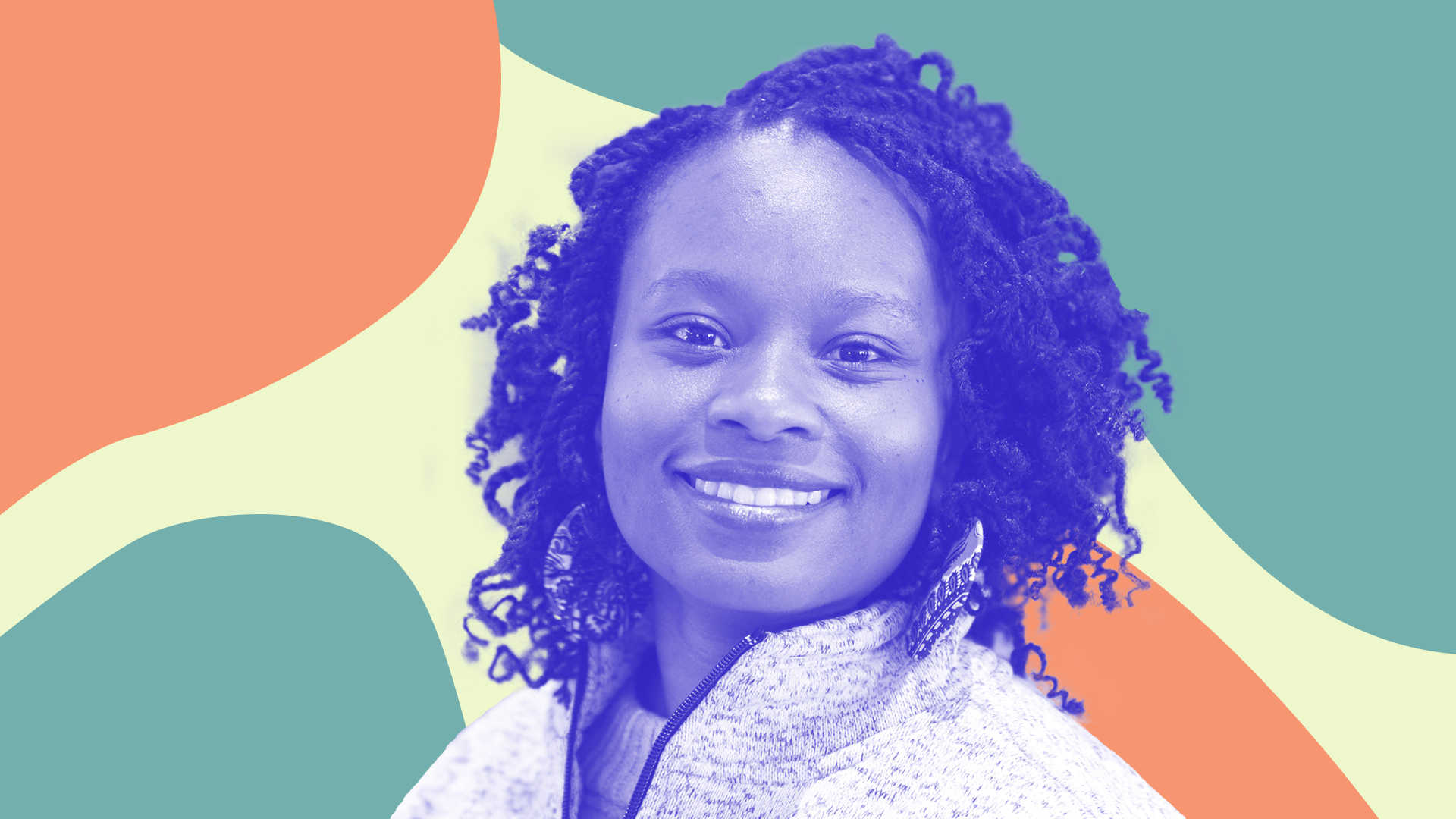My Life In Tech is putting human faces to some of the innovative startups, investments and policy formations driving the technology sector across Africa.
Mercy Zulu-Hume is part of a team of investors working to fund and support businesses in Africa and India who are impacting their communities particularly unserved and underserved ones and in areas under the SDG goals. In this edition of My Life in Tech, Mercy Zulu-Hume shares her journey to impact investment and topical issues around the pandemic within her firm.
In Dead Aid, Economist, Dambisa Moyo asks an important question about the continent: Why is Africa locked in a cycle of dysfunction? Aid, she answers, more than US$1trillion of financial aid that has and continues to make its way to the continent since the 60s. Mercy Zulu-Hume shares the same sentiments around financial aid: while some have been useful tools in spurring development, a number of them have done more harm than good for the socioeconomic well-being of the continent.
Born and bred in Zambia, Zulu-Hume already had interests in issues revolving around socioeconomic issues although at the time, she was unaware of the subject area. She loved civics and social studies and recalls her mother saying to her, ‘you should be an Economist’. And off she went to the University of Zambia to obtain a degree in Economics. There, while studying for her undergraduate degree, her interests zeroed into human development, in how Africa could break away from its cyclic dysfunction and create wealth that translated from one generation to the next.
“A country coming into Africa and setting up a factory is amazing but that’s the first layer, where someone has a job instead of sitting idly at home,” she tells me enthusiastically during a call from South Africa.
“But for me the next step is real generational wealth. How can we create real generational wealth for Africans?”
Post-graduation, Zulu-Hume went on to work on projects with the World Bank and the United Nations Economic Commission for Africa in Zambia on policy research and formulation while also sharing her insights and opinions on the Zambian economy as a Commonwealth Youth Correspondent. But there was more to learn in order to drive the transformational impact that she desired.
With proceeds from a car leasing business and savings, Zulu-Hume packed her bags and moved to Cape Town to pursue a Master’s degree in Economic Development.
“I’ve also always been entrepreneurial, so as far back as I can remember, I’ve always done a little something on the side to meet specific goals or supplement income,” she tells me.
“I did a cab business at that time with a partner of mine. We bought second-hand cars and then we did some work on them to take them up to a certain level and then we leased-to-own to certain taxi drivers who wanted to own their own cars but didn’t have the capital upfront to do so.”
Why impact investing?
A poster advertising a free impact investing masterclass during her Master’s degree was the first Zulu-Hume had heard about impact investing.
“I was like, free? Wow, sign me up!”
It turned out to be a game changer, just what she had been looking for. And what’s more, just a week after the masterclass ended, a job email came from Goodwell Investments where she now works as an Investment Associate four years down the line.
“It looked like the stars were aligned, but I’m a believer, so I believe it was grace,” she says. “They were looking for someone to participate in a research project to understand what entrepreneurs were doing, what challenges they were trying to solve, their locations across the continent, such fantastic bank of information and I thought this was an area I could get into and learn really quick and see what the landscape looked like.”
Goodwell Investments operates in a US$502 billion global impact investment market. Founded in 2006 and headquartered in The Netherlands, the investment firm’s portfolio cuts across a varied number of sectors and includes both technology-enabled and traditional businesses. At the core of these businesses however, is the demographic to which their products and services are targeted. For Goodwell, these are the unserved or underserved in any community, those who are easily excluded from or served inattentively be it informal sector workers or low-income communities.
Some of its portfolio companies are well known startups: MAX.ng, Paga and Tomato Jos in Nigeria, Sendy and Copia in Kenya, East Africa Fruits in Tanzania which optimises farm-to-market value chains using its cold chain infrastructure innovation. There are many more spread across India, Ghana and South Africa. To date, the firm’s investments number over 25 with its over US$150 million capital.
As with impact investors, the firm’s investments are made into companies, organizations, and funds with the intention to generate social and environmental impact alongside financial returns. And for Zulu-Hume, this financial model was attractive for two reasons: it had the potential to create generational wealth. Businesses that were invested in could go on to form the foundation for other such businesses unlocking economic development in the continent. More importantly, she believed it was a level-playing field for entrepreneurs, not a handout.
“There’s no dependency. It’s saying, I have money, this other person does, there’s an entrepreneur who has this idea and can provide returns as well as meet a mandate to make an impact, let’s make a contract,” she says.
What is an investable, impactful business?
As a rule, businesses that end up in the Goodwell portfolio are often providing solutions within the firm’s key focus areas which are closely linked to the Sustainable Development Goals of the United Nations. Financial inclusion, energy, agriculture, logistics, health, education, water and sanitation. As earlier stated, the businesses must cater to unserved and underserved demographics as well as operate within the firm’s geographical focus.
This is very critical because, as Zulu-Hume says, on-ground hands-on engagement with the businesses and their customers is not something that is taken lightly.
“We do not believe in the approach where you are an investor sitting in America or Europe or Asia and you’re not on the ground close to your portfolio companies and the users that they serve,” she says.
How else can you measure the transformational power of a microloan to a small business owner in rural Kenya or the sales avenues a seamless payment portal opens up for a small businesses owner in Lagos asides figures?
And this is not to say the numbers aren’t important. As early-stage investors, much of the traction and numbers through pre-seed and seed stages are all part of an array of considerations that work towards whether a term sheet is signed at the end of the day or not.
When it comes to the key makeup of the teams themselves, there are three key body parts which drive the whole that they put into consideration.
Entrepreneurial head, heart and hands
Sights remain on entrepreneurs who are visionary, daring, and constantly seeking innovative ways to solve challenging local problems.
“The crazier the better,” Zulu-Hume says with a laugh.
A genuine desire and passion for the business and the problem it seeks to solve is also critical. For impact investors, the impact is not an afterthought but something intricately woven into the ideologies and operations of the business.
“We are not just after returns, we have a genuine interest in businesses that are contributing to making lives better.”
But having innovative ideas and altruistic ideals will not count if execution is poor. And this is where the hands come in. Entrepreneurs and their teams must not only be willing but able to do the work.
When I ask if sectoral knowledge is a prerequisite for this ability to do the job, she says this is not something the firm looks at in isolation.
What is important is that this ability can be demonstrated either through past entrepreneurial, work or volunteer experience. What is critical is that there is an understanding of the market, the needs of that market, the behaviours and economic capabilities of that market and how the business’ product or service solves these needs in a way that makes a difference while generating a profit.
What has the pandemic changed?
South Africa, like many countries across the globe, is finally lifting a movement restriction that has been in place since March 27 to stall the spread of the coronavirus which has now affected over 10milion people globally.
According to Zulu-Hume, the immediate concern for Goodwell’s portfolio companies has been employees’ health and safety.
“We believe that you cannot have social impact without financial sustainability. If the business is not faring well, there’s not going to be any business to provide that impact,” she says.
For many who have run on a hybrid of remote and onsite work, switching completely remotely has been more seamless than for those who have had to adjust as a result of the pandemic. In terms of operations, it has been different strokes for different folks depending on their individual sectors and locations. Financial service businesses, for instance, who rely on agent networks, have had to shelf some activities or planned rollouts as on ground activities are harder to continue.
“The biggest issue however, is runway, making sure that you have enough runway to go through the next 18 months that we perceive the capital markets will be freezing up,” she adds.
As an investment firm, much of the work has been providing support to its portfolio companies in whatever ways possible including ensuring that they have the financial runway to survive the next couple of months or a year when much of the aftershocks of the pandemic on the global economy is still going to be felt. In May, Tomato Jos closed a US$4.4 million Series A round through Alitheia Capital, its local investment partner in Nigeria.
While many issues around the pandemic remain open-ended, from vaccines to life returning to what we used to know it to be, Zulu-Hume is excited about the opportunities the times present.
“In South Africa, within a week of the lockdowns, a lot of e-commerce companies were already reporting a higher than usual figure,” she says.
Tech-enabled businesses have seen a surge in users from edtech to e-commerce, healthtech to logistics, all at no cost.
With the mandates and need to self-isolate and remain safe, many have turned to online businesses to limit physical contact and movement hence the cost of acquiring new customers has decreased remarkably.
Zulu-Hume also says one of the other things that excites her about the opportunities the pandemic presents is that maybe African countries can begin to rely on each other in terms of trade activities especially tapping into the manufacturing and agricultural activities in the various countries in the region and spurring them to do more.
“I think it was Winston Churchill who said, never waste a good crisis,” says Zulu-Hume.
“There are always opportunities out of a crisis.”



















